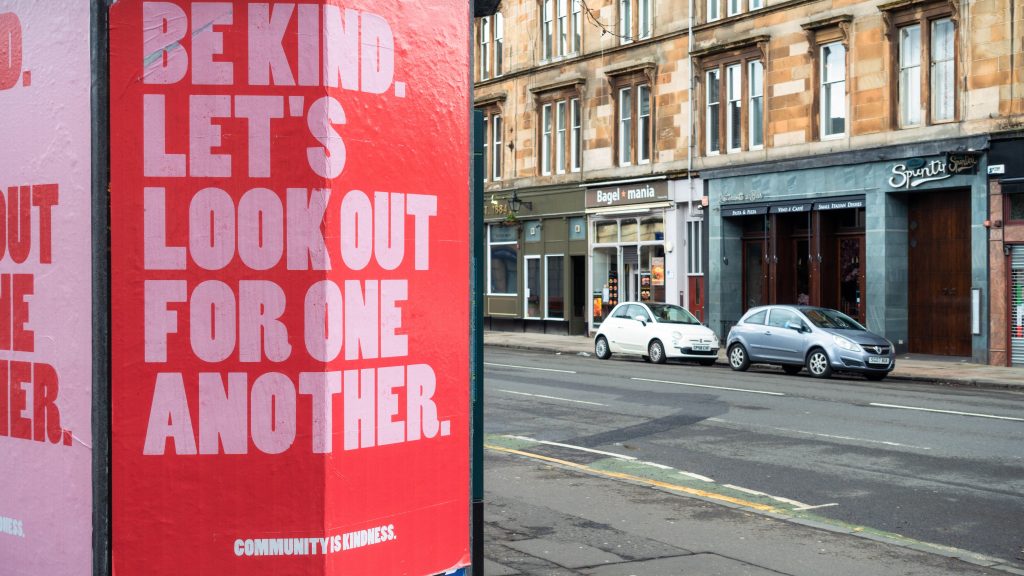Rags‐to‐riches stories and upscale living TV can influence our well-being and our interaction with the environment and other people
9 September 2020
In our latest post, Dr Olaya Moldes Andres shares some of the findings of her new open-access research paper, written with Dr Lisbeth Ku from De Montfort University, which investigates the effects of materialism on individual and societal well‐being.
Lockdown restrictions and staying at home recommendations have led to an increase in consumption of home entertainment. It’s estimated that people worldwide have watched 27% more shows and films on streaming platforms like Netflix or Amazon Prime and spend 20% more time watching broadcast TV.
Research on media and social psychology suggests that high TV and media consumption can have negative consequences for the well-being of individuals. Messages and associations implicitly or explicitly imbedded in media content can influence people’s attitudes towards different social groups, create unattainable beauty and image ideals, and present certain lifestyles, values, or personal goals as more socially desirable.
In recent years, social discourses and narratives promoted by advertisement and mass media such as gender roles, beauty ideals, or racial stereotypes have been challenged. It’s becoming widely accepted that certain implicit associations perpetrated by the media can be unconsciously assimilated by individuals leading to the development and sustainment of gender inequality and racial prejudice. Moreover, there have also been numerous public figures that have questioned the beauty and fashion ideals portrayed in advertisements for both men and women.

However, concerns about the promotion of implicit associations that link wealth to life success or consumption to happiness have gained less momentum as a social movement. Among the few to raise their voices is Naomi Klein, an award-winning journalist and New York Times bestselling author. With her first book ‘No Logo’ (2000), Klein raised awareness of invasive economic practices and the damaging social effects of the rising branded world, calling for a more sustainable economic model.
And other enterprises and NGOs, such as New Citizen Project, have emerged to create cultural interventions aiming to achieve a shift from a consumer-oriented society to a citizen-focus community. Nevertheless, these concerns are yet to reach their tipping point, gain momentum and get a spread as widely as other social movements.
“Our new research supports Klein’s thinking and suggests that these associations (money-success; consumption-happiness) not only have negative effects for our well-being, but also for the welfare of society. The endorsement of these associations can not only lead to personal financial hardship and poor mental health but might also lead individuals to embrace attitudes and behaviours that are harmful for the environment and for achieving peaceful societal coexistence.”
It’s well known that marketing and advertising communications are designed to induce consumption through the creation of positive associations with their products. Indeed, the promise of achieving happiness through spending behaviours has been explicit in advertisements with campaigns such as “Open a Coke, open happiness”, “Happiness is a choice” by Pepsi, the “Happiness quest” by Cadbury, “Get in, get happy” by Volkswagen, “Happiness is not around the corner, happiness is the corner” by BMW, and the list goes on.
In the current consumer culture, happiness has become a key selling tool comparable with “the promise of heaven” in religion as it pledges a future desired end state that motivates individuals to shape their present behaviour. Moreover, popular culture often implicitly promotes social discourses endorsing the pursuit of wealth and consumption as a strategy to achieve success and happiness in life.
For example, media content portraying rags‐to‐riches movie plots (such as Cinderella or Aladdin in children’s stories, Princess Diaries in teen comedies, or Pretty Woman or The Wolf of Wallstreet in content created for older audiences), and documentary series and reality shows presenting upscale living (such as The World’s Most Extraordinary Homes, The Real Housewives, or The Fabulous Life of the Wall Street Billionaires, just to name a few) are implicitly linking money and consumption to positive affective states, high self‐esteem, and social recognition.
These implicit messages have the power to induce individuals to work harder to be able to shop more. And undoubtedly, the more that people are drawn to consumption and to spend money, the higher the economic growth will be. However, as multiple scholars, (including classic philosophers such as Diogenes, Pythagoras, Socrates; modern economist such as Kuznets; or contemporary psychologists such as Diener, Kasser or Maslow), as well as other public figures (such as Nicola Sturgeon or Jacinda Arden) have warned that wealth, material possessions, and economic growth indexes do not reflect the welfare of individuals or social groups. Not to mention that a continuous increase in manufacturing and consumption patterns is ecologically unsustainable and had led us to the current climate emergency crisis.
Nevertheless, extensive research over the past three decades has found that individuals that associate wealth and consumption with success in life and happiness also had lower self-esteem, higher depression and anxiety, developed higher compulsive-buying behaviours, and were less engaged in physical activities but more involved in risky behaviours, such as the consumption of alcohol and drugs.

Furthermore, recent research has found that presenting messages that implicitly or explicitly associate wealth and consumption with social recognition, life success, and happiness lead individuals to report lower individual well-being and to endorse attitudes and behaviours that were detrimental for the well-being of the society. A series of experimental studies carried out by different researchers from diverse countries showed that inducing these associations thought a variety of methods (such as an exposure to fashion advertisement, narrations of rag-to-riches stories or luxury window displays) to a randomly selected group of people cause individuals to report lower well-being and also, led participants towards less prosocial and pro-environmental attitudes and behaviours, and towards a higher endorsement of unethical business practices. This is because creating mental associations between happiness and consumption or between success and wealth lead people to prioritize self-enhancement attitudes and behaviours over community-oriented ones that can be detrimental for their own happiness as well as for the well-being of others or the formation and maintenance of social groups.
“Making media corporations, businesses, and advertisement agencies understand the messages promoted and endorsed in their communications can have negative consequences for the well-being of individuals and social groups, and getting them to recognize they have a societal responsibility, could help to minimize the negative effects of consumer-oriented societies.”
In a time where there has been an intrusion of business corporations in the ethical and social reals, recognizing the dangers of promoting certain associations could have important implications for societal change. In fact, most innovative marketing communications have shifted from consumer-focused narratives to messages that aim to attain positive societal change. For example, an award-winning campaign from P&G, instead directly selling their products is seeking to combat prejudice in the US by supporting the #BlackLivesMatter movement. Undoubtedly, presenting a business as ethically responsible and socially and environmentally committed is at its heart another marketing strategy aiming to gain the customers’ sympathy and engagement, achieve viral reach, and thus, ultimately generate higher profits. However, it represents a step forward towards marketing and businesses practices that are less harmful for mental health of individuals and the welfare of the society.
Dr Olaya Moldes Andres is a Lecturer in Marketing and Strategy at Cardiff Business School.
Her paper ‘Materialistic cues make us miserable: a meta‐analysis of the experimental evidence for the effects of materialism on individual and societal well‐being’, co-authored with Dr Lisbeth Ku, Lecturer in Psychology at De Montfort University, is available open access at Psychology and Marketing.
- March 2024
- April 2023
- August 2022
- July 2022
- April 2022
- March 2022
- February 2022
- December 2021
- October 2021
- September 2021
- May 2021
- April 2021
- March 2021
- February 2021
- January 2021
- December 2020
- November 2020
- October 2020
- September 2020
- August 2020
- July 2020
- June 2020
- May 2020
- April 2020
- March 2020
- February 2020
- January 2020
- November 2019
- October 2019
- September 2019
- August 2019
- July 2019
- June 2019
- May 2019
- April 2019
- March 2019
- February 2019
- January 2019
- December 2018
- November 2018
- October 2018
- September 2018